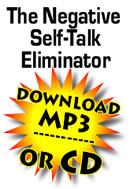An Excerpt from Dr. Iverson’s “Time Mastery Seminar”
“Do you love life? Then do not squander time—for that is what life is made of.”
— Benjamin Franklin (1706-1790)
What Time Management Does for You
With good time management, you can gain a significant chunk of time. What if you could gain 1 hour per day, 5 days per week? That would mean 250 additional hours per year! That’s over 1½ months of time you gain to play or work in a year.
This is an opportunity to enhance your productivity by 12%. Also, the more effectively you manage your time, the less stressed you will be. Stress increases from forces which are out of your control. Getting a handle on what happens with your time, sets you up for less stress.
The following strategies can assist you in saving time now being wasted. Applying even a few of these will make a difference.
Keys to Improving Organization
1. Neatness. Organize your work space. It automatically makes you feel more effective.
Aristotle said, “Order is heaven’s first law.” Order helps you feel in control and relaxes you. Ask yourself, “What kind of a person would have that kind of order (or lack of it) on their desk, or office, or car, or purse?”
50 out of 52 Fortune 500 executives said they wouldn’t give a high position of authority to a person with an extremely messy desk. Time and motion research has documented that searching for things wastes time and money, and it burns up mental capacity by having to remember where misplaced things are. Productivity goes up when neatness is instituted. Clear-off or clean-up your work space. Have only the most important things before you at a time.
2. Have everything you need at the time you begin. Have all the supplies there in the place you are going to work. Get all tools, information, CD’s, resource books, etc. there in one place at the same time.
Be ready to go when you head-into a project. This includes your refreshments. If you are a water, tea or coffee drinker, then have that with you when you are ready to start.
Avoid having to stop to retrieve something. Not having needed items can give you a perfect excuse for not getting going. Have all your resources there when you are ready to begin.
3. Resolve to handle every piece of paper, email, text, and voicemail only once. Use the wastebasket. Ditch everything that is not necessary to the accomplishment of your task or goals.
Ask yourself, ”If I didn’t read this, would there be any negative consequences?” If not–toss it in the garbage. It is a major time waster to handle a piece of paper or your emails more than one time. Decide how important it is and only handle it once. It’ll save you hours in a month’s time.
80% of papers filed are never used, they just create more work. Ask, “What would happen if I couldn’t find this piece of paper?” If there are no negative consequences, or it is of little value, or you can find the information somewhere else–throw it away.
When you skim over a text, email or paper, and instead of finishing it off and being done with it you come back to it later—you just wasted time. You’ve got to re-read it and burn time when you return to it later.
4. When you’re finished with something–put it away. Task completion means “Leave nothing sitting out when you finish.”
It’s satisfying to clear your space out when you’ve completed a piece of work. Clear off so you are ready to begin the next project. Not having things left out gives the mind a momentary pause, and creates a sense of completion.
Not only that, but when things are put away in their correct place, when you next need them you’ll know precisely where they are.
Posted: December 15th, 2010 under Tips for Success.






